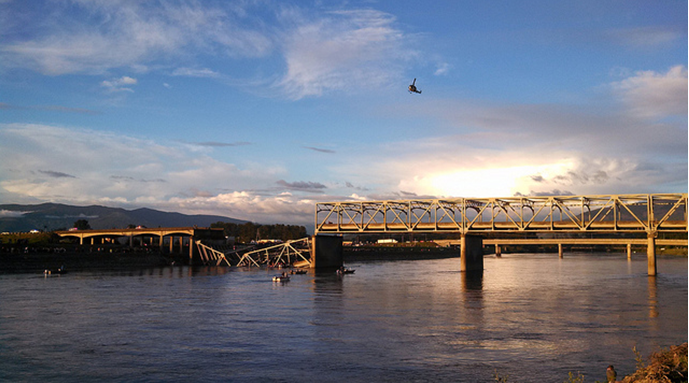Contributing Factors For Bridge To Collapse
We all have heard of buildings collapsing, but when it comes to bridge collapse, it seems that the media and all people are fascinated by the news story. Since it is rare and even always unexpected for a bridge to collapse, the media almost always sensationalized bridge tragedies. In addition to this, bridge collapse is always preceded by its negative effects that can easily isolate an area.

But what are really the factors that can collapse a bridge? This question is what we aim to answer in this post. I have enumerated some of the contributing factors that may cause a bridge to collapse. It is worth noting though that, in most case, a bridge collapses because of a number of factors and not a single factor only. Nevertheless, here are some of the factors you need to know.
Poor maintenance
Even the strongest bridges in the world still need maintenance. When a bridge is not well maintained and don’t even undergo regular inspection, that bridge is doomed to collapse. As a matter of fact, most bridges should have still continued to exist if it was properly maintained. Every once in a while, experts should check a bridge and replace rusted parts, clear drainage areas, add new coat of paint, and put in additional support to the bridge just in case the bridge is being used beyond its capacity.
Design defect
Obviously, a bridge should be designed the right way. However, no matter how a bridge is designed and planned properly, there is still room for human error and lapses in predicting future events that may befall a bridge.
Materials used
A bridge can be made with different materials. The materials used should be able to accommodate the stress and impact being put into it every day. It must meet the demands with enough allowance or margin of error. Thus, every bridge should only be used within the capacity of the materials used.
Flood
At first, it may sound impossible for water to collapse a steel-concrete bridge. However, natural calamities such as flood can have a different twist. For example, a river may overflow and bring large debris of wood along its strong current. A bridge may catch all these debris and along with the strong water current, the bridge may eventually give in and collapse.
Another way that a flood may destroy a bridge is through eating away the foundation of the bridge. Continuous flow of water can wear away the earth around the bridge’s columns. Even during normal circumstances, a river can create a scour over many years which will lead to bridge collapse.
Ship Impact
Another cause of bridge collapse is ships. Though boats or ships are slow moving vehicles, it is packed with so much mass and force that it can rock a bridge at its core upon impact. A bridge may collide with the bridge itself or its foundation, pier, and columns.
These are just some of the most common causes for bridge to collapse. Yes, a bridge is always subject to risks and hazards. But with the help of innovative designs and brilliant forward thinking, we can make our bridge safer and even stronger.
